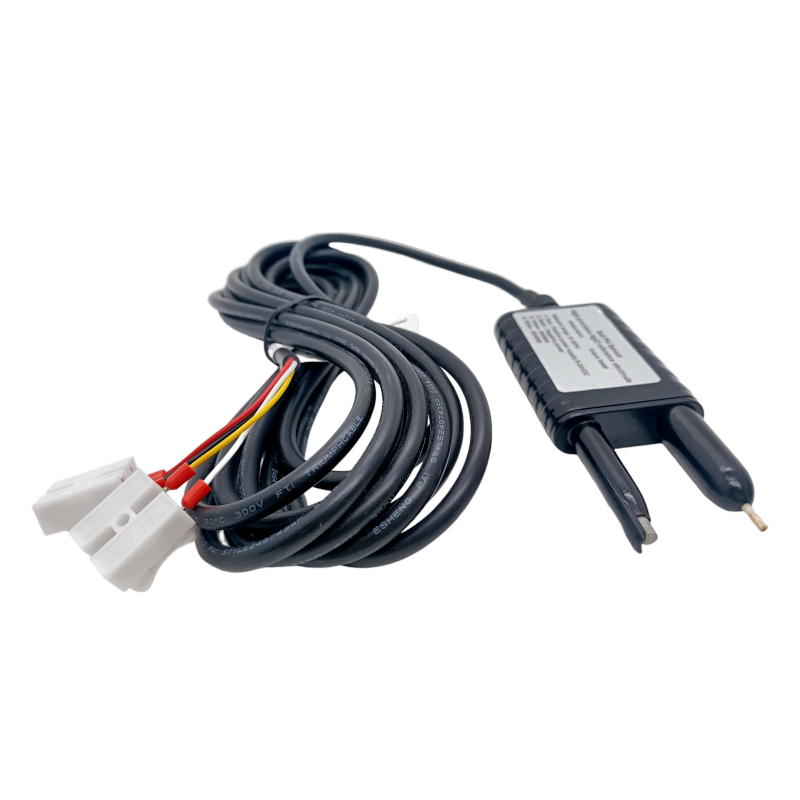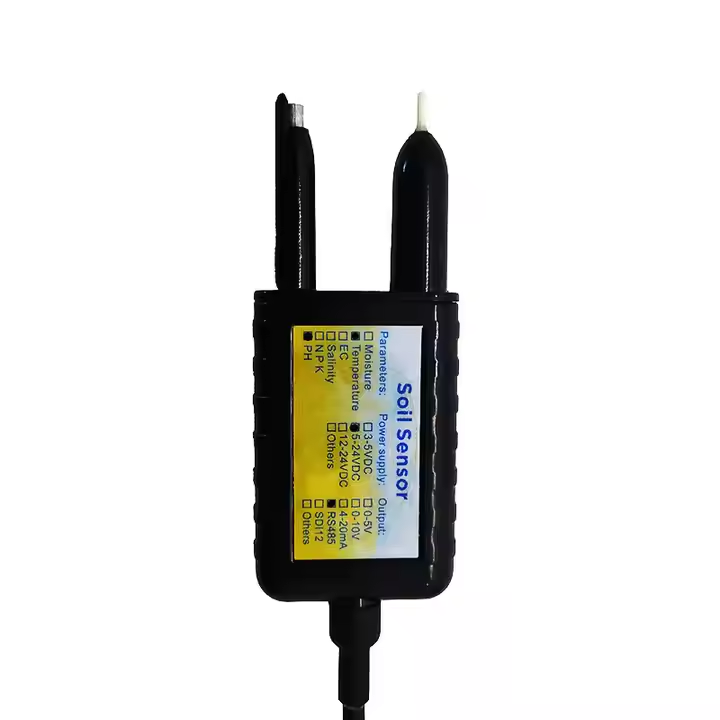Айыл чарбасынын өндүрүмдүүлүгүн жогорулатуу жана так дыйканчылыкка жетүү максатында Болгария өкмөтү улуттук масштабдагы инновациялык долбоорду ишке киргизди: өлкөнүн негизги айыл чарба аймактарында топурактагы азоттун (N), фосфордун (P) жана калийдин (K) деңгээлин реалдуу убакыт режиминде көзөмөлдөө үчүн алдыңкы топурак сенсорлорун орнотуу. Бул демилге Болгарияда айыл чарбасын модернизациялоодо жана туруктуу өнүктүрүүдө маанилүү кадам болуп саналат.
Акыркы жылдары глобалдык климаттын өзгөрүшү жана калктын өсүшүнөн улам келип чыккан кыйынчылыктардын көбөйүшү менен салттуу айыл чарбасы чоң кысымга кабылды. Бул кыйынчылыктарды чечүү үчүн Болгариянын айыл чарба тармагы түшүмдүүлүктү жогорулатуу, ресурстардын калдыктарын азайтуу жана айлана-чөйрөгө тийгизген таасирин азайтуу үчүн инновациялык чечимдерди активдүү издеп жатат. Топурак сенсору долбоорун ишке ашыруу бул аракеттердин маанилүү бөлүгү болуп саналат.
Болгариянын Айыл чарба министрлиги жетектеген бул долбоор бир катар эл аралык агротехнологиялык компаниялар жана жергиликтүү изилдөө институттары менен биргеликте ишке ашырылууда. Долбоордун алкагында үч жылдын ичинде өлкө боюнча 10 000ден ашык алдыңкы топурак сенсорлорун орнотуу пландаштырылууда. Сенсорлор буудай, жүгөрү, күн карама жана жашылча өстүрүлүүчү аймактарды кошо алганда, негизги айыл чарба өсүмдүктөрү өстүрүлүүчү аймактарга таратылат.
Сенсорлор топурактагы NPKнын көлөмүн реалдуу убакыт режиминде көзөмөлдөп, маалыматтарды борбордук маалымат базасына жөнөтөт. Бул маалыматтар аркылуу дыйкандар топурактын азык заттарынын абалын өз убагында түшүнүп, жер семирткичтерди колдонуунун илимий планын иштеп чыга алышат. Бул түшүмдүүлүктү жогорулатууга гана эмес, жер семирткичтерди колдонууну жана топурак менен суу ресурстарынын булганышын азайтууга да жардам берет.
Долбоордо эң акыркы "Буюмдар интернети" (IoT) жана чоң маалыматтарды талдоо технологиялар колдонулат. Сенсорлор маалыматтарды зымсыз түрдө булутка негизделген платформага жөнөтөт, ал эми дыйкандар топурактын абалын смартфондорунан же компьютерлеринен реалдуу убакыт режиминде текшере алышат. Мындан тышкары, маалыматтарды талдоо тобу жекелештирилген айыл чарба кеңештерин жана эрте эскертүү кызматтарын көрсөтүү үчүн чогултулган маалыматтарды терең талдоо жүргүзөт.
Долбоордун ачылышында сүйлөгөн сөзүндө Болгариянын айыл чарба министри: «Бул инновациялык долбоор биздин айыл чарба өндүрүшүбүздү түп-тамырынан бери өзгөртөт. Топурактын азык заттарын реалдуу убакыт режиминде көзөмөлдөө менен биз жер семирткичтерди так колдоно алабыз, түшүмдүүлүктү жогорулатабыз, ресурстардын калдыктарын азайтабыз жана айлана-чөйрөбүздү коргой алабыз. Бул айыл чарбасын модернизациялоодогу маанилүү кадам гана эмес, ошондой эле Туруктуу өнүгүү максаттарыбызга жетүүдөгү негизги кадам», - деди.
Көптөгөн жергиликтүү дыйкандар долбоорду кубатташты. Түндүк Болгариядагы буудай дыйканы: "Мурда биз жер семирткичтерди тажрыйба аркылуу колдончубуз, эми бул сенсорлор менен биз жер семирткичтерди чыныгы маалыматтардын негизинде колдоно алабыз. Бул өндүрүштү гана көбөйтпөстөн, чыгымдарды да үнөмдөйт, бул биз, дыйкандар үчүн жакшы жаңылык", - деди.
Долбоор ишке ашып жаткан сайын, Болгария алдыдагы бир нече жылда көбүрөөк айыл чарба аймактарын топурак сенсорлору менен камтууну жана акырындык менен дрон мониторинги, акылдуу сугат системалары жана башкалар сыяктуу башка алдыңкы айыл чарба технологияларын киргизүүнү пландаштырууда. Бул технологияларды колдонуу Болгарияда айыл чарба өндүрүшүнүн натыйжалуулугун андан ары жогорулатат жана айыл чарбасынын туруктуу өнүгүшүнө өбөлгө түзөт.
Болгарияда топурак сенсору долбоорун ишке ашыруу өлкөнүн айыл чарбасы үчүн жаңы мүмкүнчүлүктөрдү гана алып келбестен, дүйнөнүн башка өлкөлөрү жана аймактары үчүн үлгү болуп саналат. Илимий жана технологиялык инновациялар аркылуу Болгария айыл чарбасынын жашыл, акылдуу жана натыйжалуу келечегине карай бара жатат.
Көбүрөөк маалымат алуу үчүн,
сураныч, Honde Technology Co., LTD компаниясына кайрылыңыз.
Email: info@hondetech.com
Компаниянын веб-сайты:www.hondetechco.com
Жарыяланган убактысы: 2025-жылдын 10-январы



